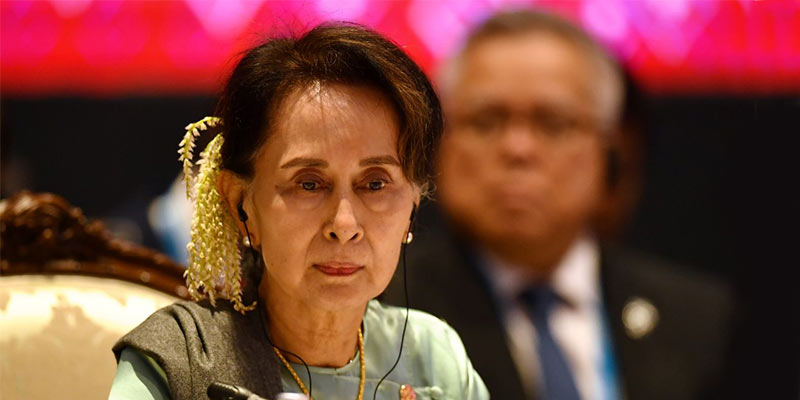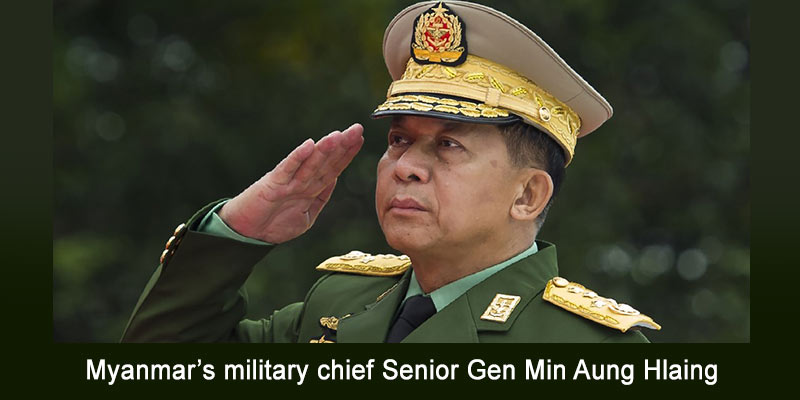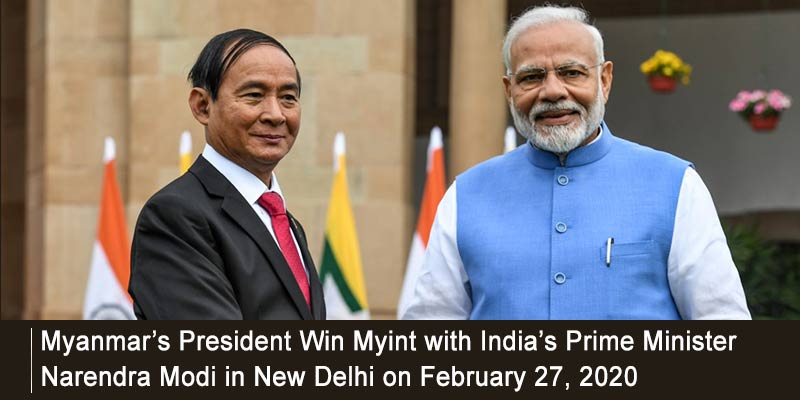- World
- Feb 01
Explainer / India-Myanmar relations
• Myanmar’s military seized power in a coup against the democratically elected government of Nobel laureate Aung San Suu Kyi, who was detained along with President Win Myint and other leaders of her National League for Democracy (NLD) party in early morning raids.
• Coup d’état is sudden removal of a government through illegal force by a small group, often a military one.
• The Myanmarese military staged the coup amid its rising friction with the ruling NLD government over the results of the November 8 general election. The NLD had registered a thumping victory in the polls. However, the military had alleged discrepancies in the electoral process.
• Myanmar’s military has announced it will hold a new election at the end of a one-year state of emergency. The announcement on military-controlled Myawaddy TV came after an earlier declaration that because national stability was in jeopardy, all government functions would be transferred to military chief Senior Gen Min Aung Hlaing under a provision in the 2008 constitution that was issued under military rule.
• The takeover is a sharp reversal of the partial yet significant progress toward democracy Myanmar made in recent years following five decades of military rule and international isolation that began in 1962.
• The democratic transition in Myanmar had taken place in 2011 after decades of military rule.
• Nobel Peace Prize winner Suu Kyi, 75, came to power after a 2015 election win that followed decades of house arrest and struggle against the junta that made her an international icon. While still hugely popular at home, her international reputation was damaged after she failed to stop the forced expulsion of hundreds of thousands of Rohingya from western Rakhine state in 2017.
• Global institutions and former advocates including the Dalai Lama publicly denounced her and many of the numerous accolades awarded to her were rescinded. In 2019, she flew to the Hague to face charges of genocide at the International Court of Justice.
India expresses deep concern
• India expressed deep concern over the military coup in Myanmar, saying it has always been steadfast in supporting the democratic transition in that country. The ministry of external affairs said India is monitoring the situation closely.
India-Myanmar relations
• Myanmar and India have shared a historical and cultural past and share friendly relations. Myanmar is the only ASEAN country with which India shares a land border of over 1,600 kms, making it a gateway to ASEAN countries.
• Myanmar is at the confluence of India’s two key foreign policy objectives — ‘Act East’ and ‘Neighbourhood First’.
• This relationship has been further strengthened by high-level visits, signing of MoUs, ongoing development cooperation, regular Indian Technical and Economic Cooperation (ITEC) and capacity building programmes, enhanced trade & commercial ties, and growing defence and security collaboration.
• Development cooperation is a prominent feature in India’s overall bilateral cooperation with Myanmar. India’s involvement and assistance in this field extends from the setting up of major connectivity infrastructure to significant initiatives in establishing long-term, sustainable and relevant institutions for capacity building and human resource development in areas such as agricultural research and education, IT and skill development.
• India-Myanmar bilateral trade stood at $1.5 billion in 2019-20. India is one of the largest trading partners of Myanmar.
• India and Myanmar enjoy a robust and expanding partnership in the area of energy cooperation and both sides recognise the mutual benefit of greater integration in the energy sector between the two countries. With investments of over $1.2 billion, Myanmar has the highest Indian investment in any country in South Asia.
How other countries reacted to the military action in Myanmar?
• The top United Nations leadership has strongly condemned the detention of Myanmar’s top political leaders, as UN Secretary General Antonio Guterres voiced concern over transfer of powers to the military, calling it a serious blow to democratic reforms in the country. Guterres expressed his grave concern regarding the declaration of the transfer of all legislative, executive and judicial powers to the military and said these developments represent a serious blow to democratic reforms in Myanmar.
• Alarmed over the coup in Myanmar, the US has said it is monitoring the situation closely and threatened unspecified action if corrective steps are not taken to restore democracy.
• China said that it hoped that all sides in Myanmar could properly manage their differences under the constitution and legal framework and uphold stability.
• Bangladesh called for peace and stability in Myanmar and said it hoped to continue the process of voluntary repatriation of Rohingya refugees with its neighbour.
Manorama Yearbook app is now available on Google Play Store and iOS App Store



